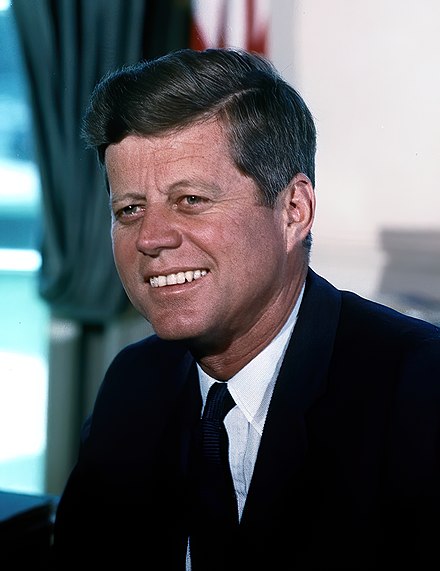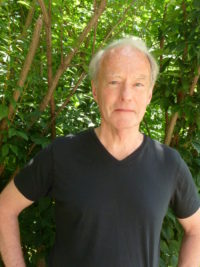
John F. Kennedy%2C White House color photo portrait.
(Image by (From Wikimedia) Cecil Stoughton, White House, Author: Cecil Stoughton, White House) Details Source DMCA
There is a vast literature on the assassination of President John F. Kennedy, who died on a November 22nd Friday like this in 1963. I have contributed my small share to such writing in an effort to tell the truth, honor him, and emphasize its profound importance in understanding the history of the last fifty-six years, but more importantly, what is happening in the U.S.A. today. In other words, to understand it in its most gut-wrenching reality: that the American national-security state will obliterate any president that dares to buck its imperial war-making machine. It is a lesson not lost on any president since Kennedy.
Unless one is a government-disinformation agent or is unaware of the enormous documentary evidence, one knows that it was the CIA that carried out JFK's murder. Confirmation of this fact keeps arriving in easily accessible forms for anyone interested in the truth. A case in point is James DiEugenio's recent posting at his website, KennedysandKing, of James Wilcott's affidavit and interrogation by the House Select Committee on Assassinations, declassified by the Assassinations Record Review Board in 1998. In that document, Wilcott, who worked in the finance department for the CIA and was not questioned by the Warren Commission, discusses how he unwittingly paid Lee Harvey Oswald, the government's alleged assassin, through a cryptonym and how it was widely known and celebrated at his CIA station in Tokyo that the CIA killed Kennedy and Oswald worked for the Agency, although he did not shoot JFK. I highly recommend reading the document.
I do not here want to go into any further analysis or debate about the case. I think the evidence is overwhelming that the president was murdered by the national-security state. Why he was murdered, and the implications for today, are what concern me. And how and why we remember and forget public events whose consequences become unbearable to contemplate, and the fatal repercussions of that refusal. In what I consider the best book ever written on the subject, JFK and the Unspeakable: Why He Died and Why It Matters (2009), James W. Douglass explains this in detail, including the James Wilcott story.
Realizing what I am about to say might be presumptuous and of no interest to anyone but myself, I will nevertheless try to describe my emotional reactions to learning of John Kennedy's murder so long ago and how that reverberated down through my life. I hope my experiences might help explain why so many people today can't face the consequences of the tragic history that began that day and have continued to the present, among which are not just the other assassinations of the 1960s but the lies about the attacks of September 11, 2001, and the subsequent endless and murderous "war on terror" with its mind-numbing propaganda and the recent Russia phobia and the blatant celebration of the so-called "deep-state's" open efforts to overthrow another president, albeit a very different one.
On November 22, 1963, I was a college sophomore. I was going down three steps into the college dining hall for lunch. (Many of my most significant memories and decisions have taken place on steps, either going up or going down; memory is odd in that way, wouldn't you say?) I remember freezing on the second step as a voice announced through a PA system that the president had been shot in Dallas, Texas. When I finally recovered and went down into the building, another announcement came through saying the president had died. The air seemed to be sucked out of the building as I and the other students with a few professors sat in stunned silence. Soon little groups on this Catholic campus joined together to pray for John Kennedy. I felt as if I were floating in unreality.
Later that day when I left the campus and drove home, I thought back to three years previously and the night of the presidential election. Everyone at my house (parents, grandparents, and the five sisters still at home) had gone to bed, but I stayed up past 1 A.M., watching the television coverage of the vote count. My parents, despite their Irish-Catholicism, were Nixon supporters, but I was for JFK. I couldn't comprehend why anyone would vote for Nixon, who seemed to me to personify evil. When I finally went up the stairs to bed, I was convinced Kennedy would win and felt very happy.
It wouldn't be for another tumultuous decade before I would hear Kris Kristofferson sing
"Never knowin' if believin' is a blessin' or a curse
Or if the going up is worth to coming down.
From the rockin' of the cradle to the rollin' of the hearse
The goin' up was worth the coming down"
and I would ask myself the same question.
In the meantime, the next few years would bring the Bay of Pigs, the Cuban missile crisis, and the Nuclear Test Ban Treaty, among other significant events, and for a high school student interested in politics and world events it was a heady and frightening few years. It was a country of newspapers back then, and I would read perhaps 3-4 each day and sensed a growing animosity toward Kennedy, especially as expressed in the more conservative NYC papers. I can remember very little talk of politics in my home and felt alone with my thoughts. As far as I can remember, this was also true at the Jesuit high school that I attended. And of course nothing prepared me for the president's murder and the feeling of despair it engendered in me, a feeling so painful that I couldn't really acknowledge it. At nineteen, I felt traumatized but couldn't admit it or tell anyone. After all, I was a scholar and an athlete. Tough.
Then on Sunday morning my family had the TV on and we watched as Jack Ruby shot Lee Harvey Oswald, the guy the government said had killed the president. The unreality was compounded many-fold, and when later it was reported that Oswald had died, I felt I was living in an episode of The Twilight Zone, a popular television show at the time, whose narrator would say we are now entering the weird world between shadow and substance.
The next day a friend and I went to the Fordham University campus to visit a Jesuit priest who was a mentor to us. He had the television on for JFK's funeral and we sat and watched it for a while with him. After a few hours, it became too painful and the two of us went outside to a football field where we threw a football back and forth. Perhaps subconsciously we were thinking of Kennedy's love of football; I don't know. But I remember a feeling of desolation that surrounded us on that empty cold field with not another soul around. It seemed sacrilegious to be playing games at such a time, yet deep trauma contributes to strange behavior.
(Note: You can view every article as one long page if you sign up as an Advocate Member, or higher).





